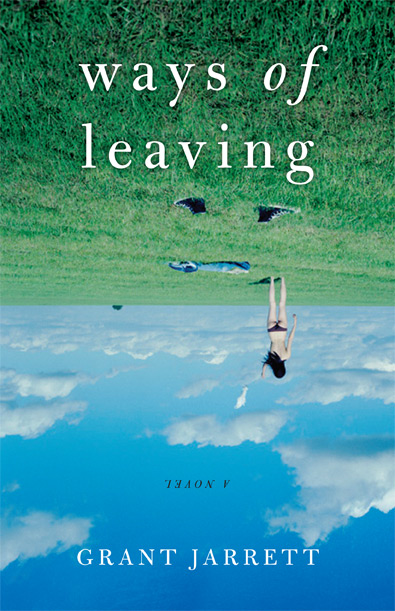People warned me about Kirkus Reviews. One successful author described them as notoriously grumpy. Another publishing insider said they were unnecessarily hard on authors. “They’re trusted and authoritative,” an author friend assured me, “and they can have a discernable impact.” Well! “But they can be unduly harsh and hypercritical.” Oh. . . . Consequently, when my publisher told me she was sending Ways of Leaving to Kirkus for review, my reaction was a mixture of terror and abject terror, with a side order of numbing dread. It isn’t that I lack confidence. . . . Well, yes, it is.
But that isn’t to say I don’t believe in my novel. I believe in it more than in anything else I’ve ever created. What concerns me is that I might just be absolutely, unarguably wrong to believe in it, that to believe in it might be further proof (for anyone who needed it) that I’m a deluded, psychotic, failure with an elevated suckage quotient. So when I saw those dreaded words, “Kirkus Review,” in the subject line of an email from my publisher, I had to tighten my sphincter muscles and grit my teeth (for me, unlike our political “leaders,” this involved more than one muscle group).
But seventeen hours later, when I finally dared to open the email and read it, I was overcome by the sort of joy I haven’t felt since the day my father explained that big noses are a sign of extremely high intelligence and great sexual prowess. In fact the review was so overwhelmingly positive I immediately thanked my publicist for writing it. She swears she had nothing to do with it. You can decide for yourself what to believe:
“A standout novel about going home, where old girlfriends, awkward funerals, deeply buried parental secrets and naked, drunken, nocturnal escapades irritate a man like scabs of his squandered youth and misspent adulthood.
 “When Chase returns to his hometown in the Poconos, his father has just died, his wife has left him, he lost his job as a journalist, and his sister wastes away in a mental institution. He’s grappling with addictions to sex and alcohol as well as, closer to the surface, a problem with rage, most frequently expressed with dripping sarcasm. It’s that sarcasm that gives this bleak, sometimes violent book its surprising levity. “She didn’t hate us,” Chase’s brother, Aaron, says of their absentee mother. “Maybe you’re right,” Chase responds. “Maybe what I perceived as hatred was really just a sort of repulsed loathing.” Jarrett (More Towels, 2002) seamlessly combines dark comedy with real tragedy and pathos, a hat trick comparable to that of certain movies with similar themes—Zach Braff’s Garden State, for instance, or Diablo Cody’s Young Adult.
“When Chase returns to his hometown in the Poconos, his father has just died, his wife has left him, he lost his job as a journalist, and his sister wastes away in a mental institution. He’s grappling with addictions to sex and alcohol as well as, closer to the surface, a problem with rage, most frequently expressed with dripping sarcasm. It’s that sarcasm that gives this bleak, sometimes violent book its surprising levity. “She didn’t hate us,” Chase’s brother, Aaron, says of their absentee mother. “Maybe you’re right,” Chase responds. “Maybe what I perceived as hatred was really just a sort of repulsed loathing.” Jarrett (More Towels, 2002) seamlessly combines dark comedy with real tragedy and pathos, a hat trick comparable to that of certain movies with similar themes—Zach Braff’s Garden State, for instance, or Diablo Cody’s Young Adult.
Scenes such as Chase’s encounter with a disabled former classmate or his confrontation with his new lover’s jealous husband are masterfully done: simultaneously exciting, frightening, hilarious and sad. Even a sex scene feels both authentic and erotic, an achievement that becomes even more impressive when the rhythm and language of lovemaking are repeated—disturbingly but fittingly—during, of all things, a grave-digging scene. The bold audacity of Jarrett’s writing carries the novel through its minor flaws: A few too many women populate Chase’s life, and there’s a sameness to his initial encounters with them that might start to bore readers as much as it does him. Also, some of his misadventures, cleverly written as they are, seem to stand apart from the rest of the story, introducing compelling characters and situations that then drift away from the larger narrative. But Chase remains an enthralling, completely believable character, and readers who share his sensibilities will writhe and laugh in empathy as he seeks to retie his unraveling life.
“Ruthlessly brilliant writing brings grace to a story smoldering in pain.”
Say that again. No, I’m serious.
Really!
“Ruthlessly brilliant writing brings grace to a story smoldering in pain.”
Ahhh.

